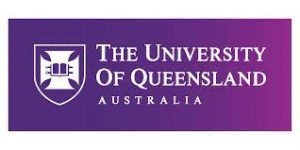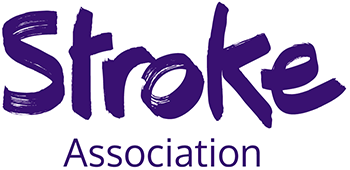Dysarthria is when speech is less clear, becomes slurred or sounds different, and can happen after a stroke.
This can be distressing and have a major effect on confidence. There is little research into dysarthria after stroke, and existing studies all measure different things. To work out which treatments are best, research studies must all assess the same things; this is called a core outcome set (COS). It is vital that this COS measures things that are important to people affected by dysarthria. To find out what aspects of speech recovery should be measured and how, we completed a study called COS-Speech. In this study will asked for views from:
- people affected by dysarthria after stroke
- clinicians
- researchers
The Speech after Stroke recovery study (SAYS) will progress the work of the COS-Speech study. SAYS will use the COS to follow-up stroke survivors for up to 18 months post-stroke. We will find out what stroke survivors think of the assessments whilst developing an understanding of speech recovery after stroke and the impact of dysarthria on every day life.
The research team includes the HEARD (Healing, Empowering and Recovering from Dysarthria) patient involvement group, who act as advisors and help to shape and manage the research.
COS-speech and SAYS are partnerships between The University of Manchester and the University of Queensland, Australia, with funding from the NIHR and via a Stroke Association Fellowship.
Watch this short video to find out more about dysarthria and the COS-Speech study.
Information for participants
Recruitment to SAYS started in October 2023. Further information to follow.
We have completed the COS-Speech study and would like to thank everyone who took part.
Watch a summary of our findings in the video below.
We invited the following people from the UK and Australia to take part in COS-Speech:
- people with dysarthria following a stroke
- researchers with experience of communication (including dysarthria) after stroke
- clinicians with experience of dysarthria after stroke
We wanted their views on how speech recovery after stroke should be measured. As part of this, they completed two questionnaires rating which things they thought were the most and least important to measure. We then discussed this information at two workshops where we agreed what aspects of speech recovery should be measured.
Research team
Meet some of the people involved in our studies:
Claire Mitchell
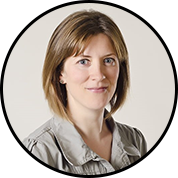 Stroke Association Research Fellow and Senior Clinical Lecturer
Stroke Association Research Fellow and Senior Clinical Lecturer
Claire is the chief investigator of SAYS and COS-Speech. She has over 20 years’ experience as a clinical specialist speech and language therapist in adult acquired neurological conditions and is a senior clinical lecturer at The University of Manchester. Claire completed her PhD in 2017.
Audrey Bowen
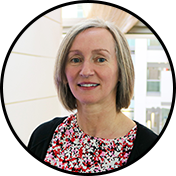 Professor of Neuropsychological Rehabilitation, The University of Manchester
Professor of Neuropsychological Rehabilitation, The University of Manchester
Audrey leads the rehabilitation research theme at the Geoffrey Jefferson Brain Research Centre. Her research aims to develop the evidence base for neurorehabilitation, specialising in cognitive and communication difficulties and patient and carer involvement.
Audrey is involved in COS-Speech and SAYS.
View Audrey’s research profile
Shahd Benafif
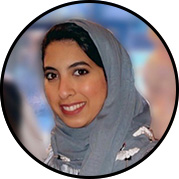 Shahd received her bachelor’s degree in Speech, Language and Hearing Sciences, and her master’s degree in Medical Speech-Language Pathology. She is currently pursuing her PhD at The University of Manchester. Her research interests include adult speech and swallowing disorders.
Shahd received her bachelor’s degree in Speech, Language and Hearing Sciences, and her master’s degree in Medical Speech-Language Pathology. She is currently pursuing her PhD at The University of Manchester. Her research interests include adult speech and swallowing disorders.
Shahd is involved in SAYS.
Paul Conroy
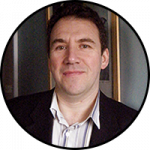 Senior Clinical Lecturer in Speech and Language Therapy
Senior Clinical Lecturer in Speech and Language Therapy
Paul’s research interests include assessment and treatment of acquired communication disabilities, including aphasia and dysarthria.
Paul is involved in COS-Speech and SAYS.
Jamie Kirkham
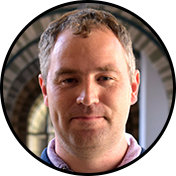 Professor of Biostatistics, The University of Manchester
Professor of Biostatistics, The University of Manchester
Jamie’s role focuses on statistical and methodological research for clinical trials and systematic reviews. He has expertise in the field of core outcome set (COS) development and has led the production of key guidance documents to support the planning, development and reporting of COS studies.
Jamie is involved in COS-Speech and SAYS.
Sarah Wallace
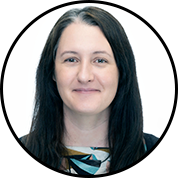 Senior Research Fellow
Senior Research Fellow
Sarah is a Lecturer in Speech Pathology at the University of Queensland, and a Certified Practising Speech Pathologist. Her research interests include communication disability in ageing, and enabling and measuring meaningful change in language/communication impairment following stroke.
Sarah is involved in COS-Speech and SAYS.
Brooke-Mai Whelan
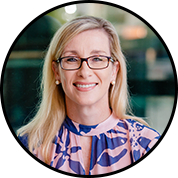 Lecturer in Speech Pathology, the University of Queensland
Lecturer in Speech Pathology, the University of Queensland
Brooke-Mai is a Lecturer in Speech Pathology at the University of Queensland. Her research interests lie in the rehabilitation of speech disorders following brain injuries in adults.
Brooke-Mai is involved in COS-Speech.
Kate Woodward-Nutt
Occupational therapist and project manager
Kate has over 20 years experience as a therapist and specialises in brain injury rehabilitation. Since moving to Manchester in 2012, she has supported a range of research studies.
Kate is involved in COS-Speech and SAYS.
HEARD (Healing, Empowering and Recovering from Dysarthria) group
Annette Dancer
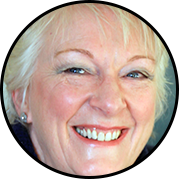 Annette became involved in dysarthria research after having a stroke in 2014.
Annette became involved in dysarthria research after having a stroke in 2014.
She is a Research Advisor to Dr Claire Mitchell, providing a patient perspective for Claire’s research projects. She has presented alongside Claire at various stroke-related conferences in the UK, giving the patient perspective on dysarthria.
Annette has written blogs on dysarthria for Evidently Cochrane and featured in publicity campaigns for British Heart Foundation. She has been a member of HEARD since its inception.
Joe Bugler
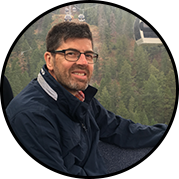 Joe has research and development experience in industry working in diabetes, specifically on clinical trials and regulatory approval for different countries.
Joe has research and development experience in industry working in diabetes, specifically on clinical trials and regulatory approval for different countries.
He previously worked as a Lab Technician in NHS hospitals in London.
Stephen Taylor
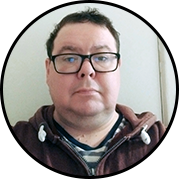 Stephen is a writer and ex-council carer. Since his stroke in 2004, he has tried to make less of a nuisance of himself, with mixed results.
Stephen is a writer and ex-council carer. Since his stroke in 2004, he has tried to make less of a nuisance of himself, with mixed results.
Project timeline
See all of the key milestones and follow our progress with SAYS and the COS-Speech studies.
March 2022
COS -Speech: Ethics approval was obtained from The University of Manchester, UK. for COS-Speech
April/May 2022
COS -Speech: A video about the project was developed with the HEARD group.
May/June 2022
COS -Speech: We finalised the longlist of questions for the COS-Speech survey with the HEARD group and members of the research team.
The website was finalised and the video of the project was launched.
Ethical approval for COS-Speech was obtained from the University of Queensland, Australia.
July/August 2022
COS -Speech: We invited people with first-hand experience of dysarthria after stroke, researchers and speech and language therapists/pathologists to take part in the COS-Speech study.
We exceeded the recruitment targets of 25 people from each group, with participants from the UK and Australia.
Participants completed round 1 of the survey.
September 2022
COS -Speech: We analysed the data and set up the questions for round 2 of the COS-Speech survey.
October to December 2022
COS -Speech: We invited the participants to complete the second round of the COS-Speech survey.
January to February 2023
COS -Speech: We analysed the data from the second round of the COS-Speech survey
March to April 2023
COS -Speech: We held two consensus meetings and decided on the Core Outcome Set for COS-Speech.
SAYS: We started to write the protocol and other documents for the speech after stroke recovery study
May to June 2023
COS-Speech: We started writing reports and papers will produce a video summarising the findings from the COS-Speech study to share with participants and with other stroke survivors, clinicians and researchers.
We will also share this information through presentations at conferences and meetings.
SAYS: We worked on the documentation needed to submit SAYS to an NHS ethics committee for approval.
July to August 2023
SAYS: We finalised the documentation for the study and submitted it to an NHS research ethics committee for their review and approval. We hoped to start recruiting stroke survivors to take part in SAYS by the end of August but it took a bit longer than planned to get the approvals in place.
September 2023 to January 2025
SAYS: We received approval for teh SAYS study from the NHS ethics committee in the middle of September. We then worked with research teams at hospitals and community sites to get things in place to open the study at each setting.
We aim to recruit up to 200 stroke survivors with dysarthria to take part in SAYS by the end of January 2025. We will complete follow -up assessments with them 6 months and 16 months after their stroke.
Up to 27th November 2023 17 stroke survivors have kindly consented to take part in SAYS
The 1st patient was recruited to SAYS in October 2023
February 2025 to July 2026
SAYS: We will continue to follow up all of the people taking part in SAYS at 6 months and 16 months post-stroke. The assessments will be completed by the end of July 2026.
July 2026 to September 2026
SAYS: We will analyse the data we have collected. We will write reports and provide copies to people who took part in the study. We will make plans to present our findings at conferences in coming months.
Contact us
Please contact us if you have any questions.
Claire Mitchell (Chief Investigator)
Email: dysarthria@manchester.ac.uk
Follow us on Twitter: @DysarthriaLife
These projects are funded by the NIHR (RfPG 202748) and the Stroke Association (SA PDF 21\\100017). The views expressed are those of the author(s) and not necessarily those of the NIHR, the Department of Health and Social Care or the Stroke Association.


